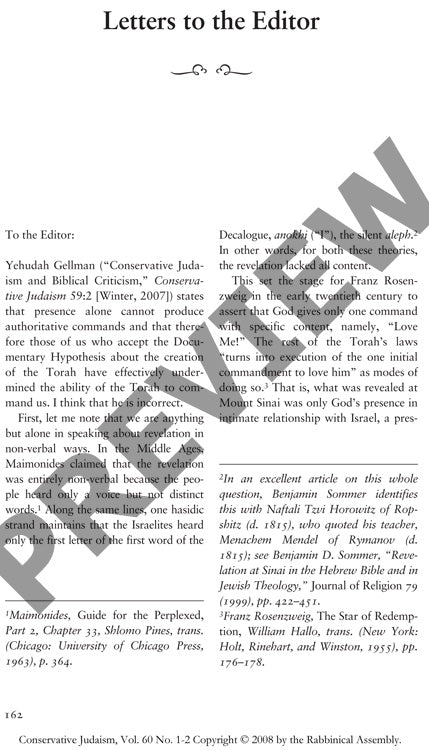Letters to the Editor
Couldn't load pickup availability
Can divine revelation maintain its commanding authority in Judaism even without specific verbal content? This pressing theological question emerges from a scholarly exchange examining how Conservative Judaism grapples with biblical criticism, particularly the Documentary Hypothesis. The debate unfolds through Rabbi Elliot Dorff's response to Yehudah Gellman's critique of Benjamin Sommer's theology of contentless revelation. Through textual analysis and comparative theological methodology, Dorff argues that divine presence alone generates authoritative commands, drawing upon Maimonides' non-verbal revelation theory, Hasidic interpretations of the silent aleph, and Franz Rosenzweig's philosophical framework. He likens revelation to human relationships where obligations arise through encounter rather than explicit articulation. Gellman's rejoinder challenges these historical precedents, contending that neither Maimonides nor Hasidic sources support truly contentless revelation, while clarifying his original critique focused solely on biblical criticism's inadequacy as theological foundation. Aubrey Glazer's contribution advocates for an integrative approach reconciling critical scholarship with devotional practice through mystical frameworks. The exchange reveals Conservative Judaism's ongoing challenge to balance rational inquiry with spiritual intuition, as scholars debate whether modern biblical criticism can support traditional concepts of divine authority while maintaining theological coherence.

More Information
-
Physical Description
-
Publication Information
Published 2007-2008
ISBN
-
Publication Credits

